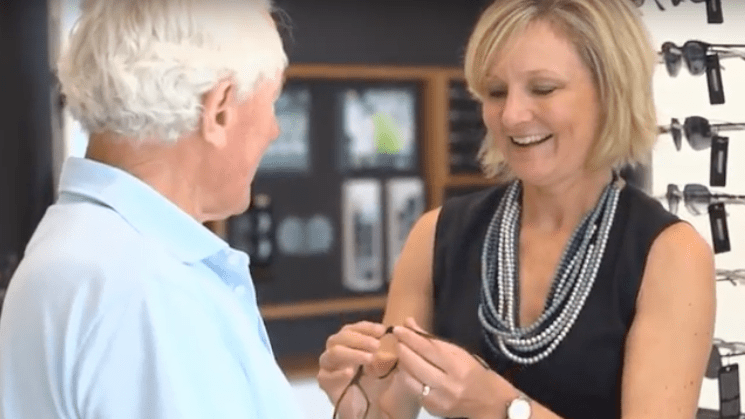March is Glaucoma Awareness Month!

50% of people with glaucoma don’t know they have it
10x more likely to develop glaucoma if a direct relative has it
What is Glaucoma?
Glaucoma is a term used to describe a collection of diseases where damage to the optic nerve causes irreversible loss of sight. It is usually caused by an increase in intraocular pressure – a pressure build up inside the eye. This occurs when the aqueous humour (a fluid that nourishes the eye and holds it in shape) is produced at a rate faster than it can drain out. Subsequently, this becomes an issue when the pressure begins to damage the optic nerve which consists of around 1 million nerve fibres and connects the back of the eye to the brain.
“Glaucoma is essentially a plumbing problem in the eye” – Rowena Beckenham
Glaucoma related vision loss occurs gradually and often a significant amount of peripheral vision is lost before the sufferer becomes aware of the problem. If left untreated, glaucoma can lead to permanent blindness.
Am I at Risk?
Anyone has the potential to develop glaucoma however some people are more at risk. The prevalence of glaucoma in the population increases with age; 1 in 10,000 babies are born with glaucoma, progressing to 1 in 200 people developing glaucoma by the age of 40, and rising to 1 in 8 people by 80 years old. Some of the risk factors of developing glaucoma are having:
- African or Asian descent
- Experienced migraines
- A family history of glaucoma
- Had an eye operation or eye injury in the past
- High eye pressure
- A history of high or low blood pressure
- Obstructive sleep apnoea
- Over 50 years of age
- Prolonged course of cortisone (steroid) medication
- Short or long-sighted
What Can I Do?
Get tested! Early detection saves sight.
Glaucoma Australia recommends anyone over the age of 50 have regular comprehensive eye exams with an optometrist every 2 years. If you have a family history of glaucoma or are of African or Asian descent, they recommend these examinations begin from 40 years onwards.
Whilst there is no cure for glaucoma, there are a number of successful glaucoma treatments that lower intraocular pressure to prevent damage to the optic nerve. Treatment varies from person to person, but most people successfully manage their condition through the use of eye drops, laser treatment, surgery, or a combination of all three. Importantly these treatments cannot reverse any damage already caused, so early detection is crucial!
Book an appointment to ensure your ocular safety today!







